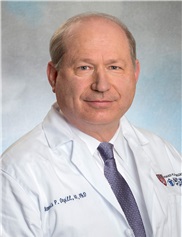Grants We Funded
Grant applicants for the 2023 cycle requested a total of nearly $4 million dollars. The PSF Study Section Subcommittees of Basic & Translational Research and Clinical Research evaluated nearly 140 grant applications on the following topics:
The PSF awarded research grants totaling over $1 million dollars to support nearly 30 plastic surgery research proposals.
ASPS/PSF leadership is committed to continuing to provide high levels of investigator-initiated research support to ensure that plastic surgeons have the needed research resources to be pioneers and innovators in advancing the practice of medicine.
Research Abstracts
Search The PSF database to have easy access to full-text grant abstracts from past PSF-funded research projects 2003 to present. All abstracts are the work of the Principal Investigators and were retrieved from their PSF grant applications. Several different filters may be applied to locate abstracts specific to a particular focus area or PSF funding mechanism.
Pre-Expansion of Recipient Site for Enhanced Fat Graft Survival
Dennis Orgill MD, PhD
2013
Brigham and Women's Hospital, Inc.
National Endowment for Plastic Surgery Grant
Breast (Cosmetic / Reconstructive), General Reconstructive
Fat grafting has re-emerged recently as a potential approach to soft tissue augmentation and reconstruction, but not without largely variable results. Factors such as donor, harvesting, processing, transplanting and the recipient site, all produce major variability in long term volume. More specifically, during the re-establishment of blood supply to the grafted tissue, adipocytes are nourished by diffusion of oxygen and nutrients from the recipient site. The variability in which diffusion and re-vascularization occur is likely responsible, in part, for the inconsistency of many grafts. External Volume Expansion (EVE) refers to a number of potential devices that apply forces to tissues in order to expand volume. Khouri et al developed a specific non-invasive EVE device (BRAVA System, Miami, FL, USA) used pre-operatively, that resulted in a 60-200 percent increase of human breast volume by quantitative MRI after autologous fat injection, and a long term consistent increase of 64 +/- 13 percent. However, EVE benefits in fat grafting are still debated and have yet to be demonstrated in controlled experimental conditions. Patient discomfort and inconsistency of use are two areas for potential improvement. We have developed an animal model for EVE stimulation, in which we demonstrated that the device induces direct cell stimulation, transient hypoxia, edema and local inflammation, by tissue stretching. These factors stimulate an increase in cellular proliferation and the formation of a substantial blood vessel network in the recipient site. At this time our aim is to demonstrate the increased survival rate of fat grafts pre-treated with EVE. If successful, our results could lead to a more suitable application of EVE devices, such as the BRAVA, allowing for better results and greater patient satisfaction. A better understanding of the mechanisms of EVE will also lead to broader utilization for other procedures that involve fat grafting.
 Dr. Orgill is the Vice Chairman for Quality Improvement in the Department of Surgery at Brigham and Women’s Hospital in Boston, MA and a Professor of Surgery at Harvard Medical School. He obtained his PhD at MIT while working with Dr. I.V. Yannas to develop artificial skin for burn victims. As a Plastic Surgeon, he has a major investigative interest in the area of wound healing through the development of better technologies including work with artificial skin, micromechanical forces, platelets, stem cells and fat grafting.
Dr. Orgill is the Vice Chairman for Quality Improvement in the Department of Surgery at Brigham and Women’s Hospital in Boston, MA and a Professor of Surgery at Harvard Medical School. He obtained his PhD at MIT while working with Dr. I.V. Yannas to develop artificial skin for burn victims. As a Plastic Surgeon, he has a major investigative interest in the area of wound healing through the development of better technologies including work with artificial skin, micromechanical forces, platelets, stem cells and fat grafting.